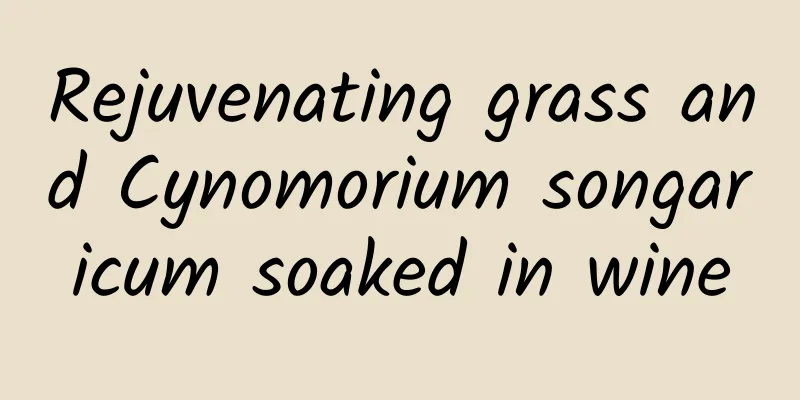The nature, flavor, meridians, effects and functions of Smilax glabra

|
Nowadays, there are various combinations of Chinese and Western medicines on the market, which dazzles many people. They don’t know much about many special Chinese medicinal materials, and they don’t know about many political symptoms. So what are the properties and meridians of Tufuling? The following article will give you a detailed introduction. What are the effects, functions and edible methods of Tu Fuling? What are the nature, flavor and meridians of Tu Fuling? Tu Fuling is a perennial evergreen climbing shrub of the Liliaceae family. Only its dried rhizomes are used as medicine. They are usually dug up in summer and autumn, and the fibrous roots are removed. After washing, they are dried and used as medicine; or they can be cut into thin slices while fresh and dried for medicine. Produced in the southern part of the Yangtze River Basin, Smilax glabra is also known as Xianyiliang, Tuling, Hong Tuling, Shanzhufen, Maoweishu, Shanyiliang, Shanqiliang, Prickly Zhuling, Guoshanlong, Shandili, Guoganglong, etc. Here is a brief description of the effects, properties, meridians and eating methods of Smilax glabra. 1. The efficacy and function of Smilax glabra Wild Smilax glabra detoxifies, removes dampness and opens up joints. It is used for limb cramps and muscle and bone pain caused by damp-heat stranguria, leucorrhea, carbuncle, scrofula, scabies, syphilis and mercury poisoning. For the treatment of syphilis, this product can be used alone in large doses as a decoction for frequent administration, or it can be used in combination with raw coix seed, honeysuckle, saposhnikovia divaricata, akebia, etc. For those with damp-heat, stranguria and red and astringent urine, it can be used in combination with Akebia, Taraxacum mongolicum, and Polygonum multiflorum to promote diuresis, detoxify and eliminate turbidity. 2. Nature, flavor and meridians of Smilax glabra Wild yam tastes sweet and light, and is neutral in nature. poisonous. It enters the liver, stomach, kidney and spleen meridians. Disperse and descend. 3. Usage, dosage and contraindications of Smilax glabra Dosage and Administration: For oral administration: decoct in water, 10-60g; or make into pills or powder. Or evaporate dew; or make wine. For external use: take appropriate amount, grind into powder and apply on the affected area. Contraindications: Patients with liver and kidney yin deficiency should take with caution. Avoid touching iron objects and drinking tea when taking it. 4. How to eat Smilax glabra (1) Stewed Pork Spine with Chinese Smilax Ingredients: 500g pork spine, 40g Chinese yam, 5g salt practice: 1. Wash the smilax glabra and crush it for later use; 2. Wash the pork spine, put it in a casserole, add appropriate amount of water and cook for half an hour; 3. Remove the pork spine and the floating oil on it, add the Chinese yam and boil until there are two bowls of soup left; 4. Add salt to taste. Health-preserving effects: It has the effects of strengthening the spleen and eliminating dampness, replenishing yin and benefiting marrow, and is suitable for diabetic patients. (ii) Chinese yam turtle Ingredients: 500g turtle, 30g smilax glabra, 2g salt practice: 1. Remove the turtle's head and shell, wash and cut into pieces. 2. Put the wild yam into a casserole, add appropriate amount of water and boil to extract the juice. Turn off the heat when the juice is thick, remove the residue and keep the juice. 3. Put the medicinal juice, turtle meat and salt into the pot, add a little water, and stew until the turtle meat is cooked, then turn off the heat. Health-preserving effects: nourishing yin and blood, detoxifying and removing dampness. In the above article, we learned about the nature, flavor and meridians of Chinese yam, which can help everyone introduce how to take the medicine and how to cook it. It can be used to make soup or stir-fry. At the same time, it has a good effect on nourishing the kidneys, strengthening yang and treating diabetic patients. |
<<: Is the medicinal property of earthworms good?
>>: What are the medicinal properties of iron leaves?
Recommend
It turns out that AI can be used in this way! Visit the AIGC Innovation Center in Turing Town and explore different artificial intelligence
【Science entry: AIGC】 This cool term is the abbre...
A pair of energy "catchers" make the invisible visible!
"Welcome to the Micro Energy Capture Laborat...
The efficacy and function of field wormwood
Field mugwort has the effect of relaxing the meri...
The efficacy and function of copper umbrella
Copper umbrella is a medicinal material, which is...
The efficacy and function of small leaf eye tree lotus
The small-leafed eye tree lotus is a traditional ...
Alibaba CMO Wang Shuai talks about Double 11 expectations: Worried that sales exceeding 30 billion will overwhelm logistics
Tmall has been keeping silent about its sales for...
Treating AI as a human? Wrong!
[Editor's Note] Human scientists and entrepre...
Navigation satellites: a compass in space
Since ancient times, how to find the direction ha...
The efficacy and function of Elsholtzia macrophylla
Elsholtzia macrophylla is a very common Chinese m...
The efficacy and function of Chinese chickweed
Many people are not very clear about the effects ...
Stop taking calcium tablets every day! Wrong calcium supplementation is secretly causing "stones" to grow in your blood vessels
Many people feel that they are getting older, so ...
Does wolfberry have the effect of delaying aging?
In our daily life, wolfberry is the most common f...
Planetary Exploration and "Look, Smell, Ask, and Touch"
Some time ago, I read Dr. Li Mingtao's articl...
The efficacy and function of chicken
The world is full of wonders, and Chinese medicin...
The efficacy and function of noon flower
Noonflower is a traditional Chinese medicine. In ...









